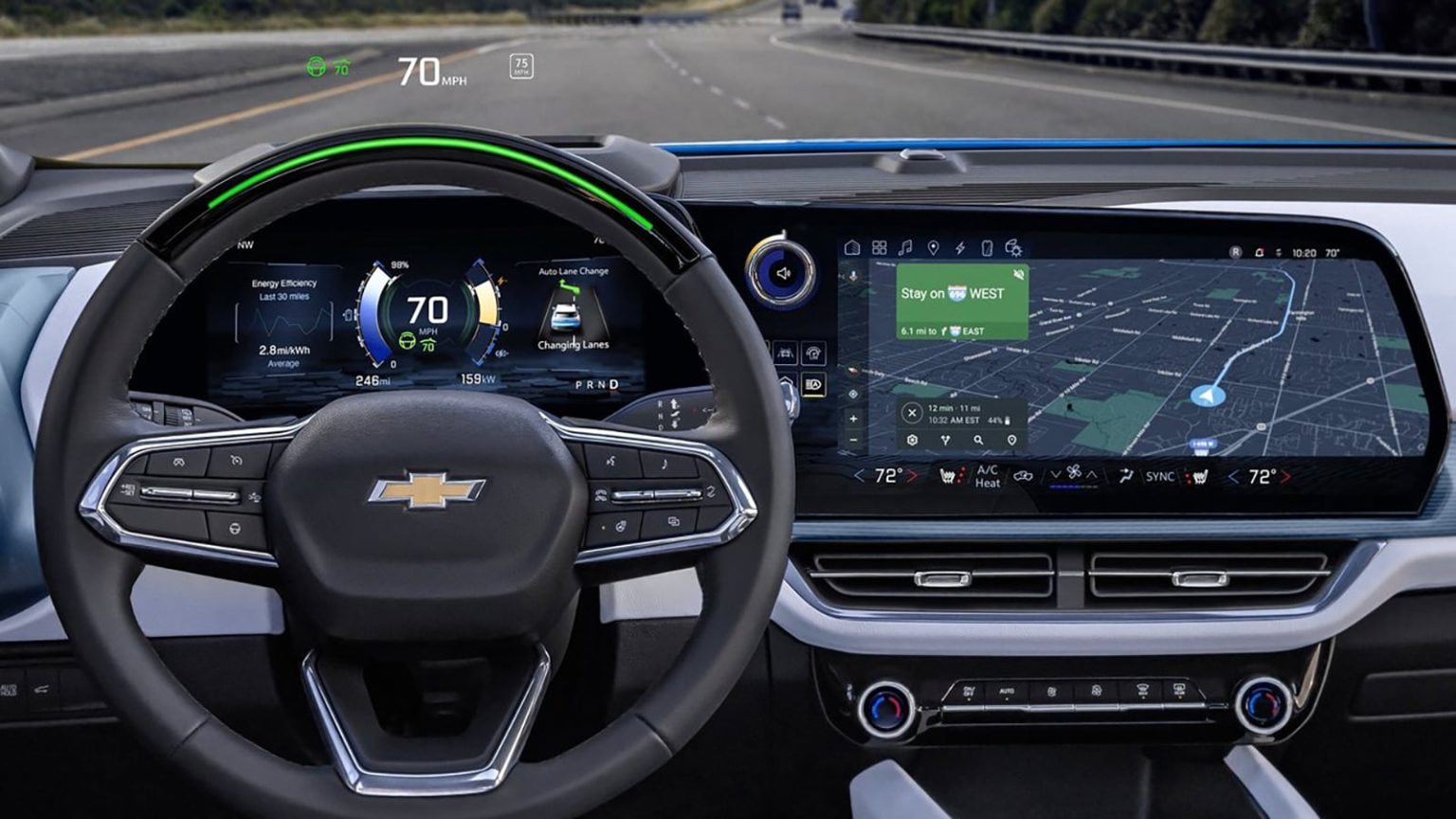Still think electric cars are the future of the auto industry? Try to keep up. EVs are happening right now. The future of the auto industry is all about software—the software that runs on a car’s touchscreens, yes, but also the bits and bytes behind everything from the battery management system to the automatic headlights.
Auto executives fantasize about a software-powered world where your recalled car is fixed with an over-the-air software patch, you pay a subscription fee to use the heated seats, and you buy your insurance through your car’s infotainment system. They also dream of a future where their developers build digital features like these using plug-and-play software and computers that slash development time and lower costs.
Before that dream can become reality, though, the auto industry needs to reboot how it creates software. Tech leaders universally agree that they desperately and urgently need new open-source standards if they’re going to develop leading-edge software as quickly and cheaply as Apple and Google. GM recently took a step in that direction by joining the Eclipse Foundation, a coalition developing open-source standards and code for software-defined vehicles. BMW, Mercedes-Benz, Toyota, and Volkswagen are already members of the Eclipse Foundation, as are industry suppliers such as Continental, Bosch, BlackBerry QNX, and ZF.
GM’s First Eclipse Open-Source Contribution
As it joins the Eclipse Foundation, GM is also making its first contribution to the Eclipse developer community. The automaker has proposed a new specification called uProtocol that standardizes communication between two or more pieces of software regardless of the operating systems and hardware they run on. Built on top of existing automotive and internet standards, uProtocol could be used to let a powertrain controller, a mobile phone, and a cloud-based server talk with a car’s infotainment system. That ability already exists today, but it often requires writing custom code to connect nonstandardized systems. If suppliers, software vendors, and automakers agreed to use uProtocol, it would make integrating these systems far easier.
GM will use uProtocol in its new Ultifi software platform that will debut in the 2024 Chevrolet Silverado EV, Blazer EV, and Equinox EV, which will not feature Apple CarPlay or Android Auto. Ultimately, though, uProtocol’s success depends on whether other industry players embrace it. You don’t just create a standard by labeling it a standard, after all. It takes consensus from other stakeholders that the guidelines are worth using. If that doesn’t happen, uProtocol will be just another propriety specification that doesn’t change how the industry operates. GM knows that.
“Joining the Eclipse Foundation is a milestone in our journey,” said Frank Ghenassia, executive chief architect of software-defined vehicles at GM. “It’s also a call for other OEMs, other [suppliers], or automotive players to join us in the community to build an industry where we can share software for improving our overall productivity while still differentiating [our vehicles].”
Is This GM’S Replacement for Apple CarPlay and Android?
Last month’s news that GM will drop Apple CarPlay and Android Auto from future EVs left a lot of people scratching their heads. Why would GM walk away from one of the most sought-after features in a new car? And how will it possibly develop something better than what’s made by the world’s first (Apple) and fourth (Google) most valuable companies—companies that have been creating cutting-edge computing technology for decades?
Joining the Eclipse Foundation isn’t a straight answer to those questions, and it’s not solely about infotainment technology. But it does give us a clearer picture of GM’s software strategy. The company is betting that the auto industry can come together to develop a set of building blocks for creating and connecting software. With robust foundational tools, the company figures its engineers and partners can create experiences to rival that of an Apple or Android smartphone.
Can the Auto Industry Actually Agree on Standards?
The Eclipse Foundation is hardly the only open-source software alliance serving the auto industry. Groups like AUTOSAR, COVESA, and SOAFEE have similar goals as Eclipse. At last week’s SAE World Congress Experience, executives from Ford and Stellantis expressed frustration with the number of software coalitions during a panel discussion titled Moving Towards a Software Defined Vehicle.
“How are we supposed to have an open ecosystem where we’ve got competing alliances?” asked Matt Jones, executive director of global technology strategy and research and advanced engineering at Ford. “It’s almost that the alliances are a microcosm of our inability to work together.”
Stephen Rober, global head of automotive research and advanced engineering at Stellantis, expanded on Jones’ frustration. “We never allow for a standard to change and grow. The standards body—we decide to join a different one, and then you have to redo things,” he said. “It’s better to fix things and expand on things rather than to jump.”
Notably, neither Ford nor Stellantis are members of the Eclipse Foundation. Mike Milinkovich, executive director of the Eclipse Foundation, says the amount of work to be done leaves plenty of space for multiple alliances. “We are working with our peers in the industry like AUTOSAR and COVESA. We see Eclipse Software-Defined Vehicle as being part of the overall ecosystem and industry initiatives. We want to really work well with these other organizations. No single organization is going to move this entire industry forward on its own.”
Read the full article here


